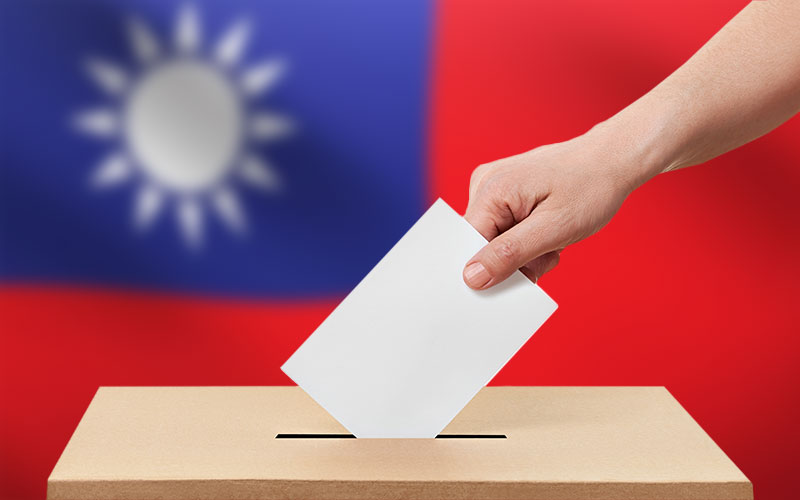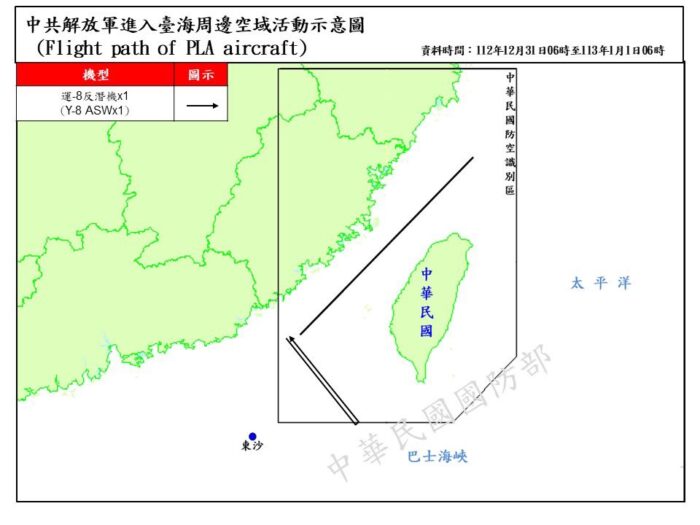
Corporate Security Concerns Ahead of Taiwan’s January 13 Election
By TorchStone Senior Analyst, Ben West
Taiwan is holding nationwide general elections to choose a new government on January 13 and threats of disruption from Beijing are looming. The past 16 months have seen increasing concern from foreign companies based in Taiwan due to China’s ability to disrupt commercial activity with military exercises. The January 13 election is a sensitive event for Taiwan-China relations since it
- demonstrates Taiwan’s status as a self-ruling island, despite Beijing’s claims to the contrary
- will set the tone for Taipei’s relations with Beijing for at least the next four years
While the Taiwan Strait has been a volatile place for decades, it will be a particularly important region to monitor over the next month.
High Stakes Election
Current President Tsai Ing-wen of the Democratic People’s Party (DPP) is reaching a term limit after nearly 8 years in office marked by a more pro-independence, confrontational approach to Beijing. Polls currently suggest that her successor will be current Vice President and fellow DPP member, William Lai. Beijing has made it clear that it would prefer the opposition Kuomintang party to win, due to its more conciliatory approach to Beijing. If the DPP wins on January 13, the risk of a more disruptive response from Beijing will increase.
Beijing has already demonstrated its intent to interfere in elections in recent months, but the big question is how far will Beijing go to antagonize Taiwan in the weeks leading up to and following January 13? The worst-case scenario, a full Chinese invasion of Taiwan to take control by force, appears to be very unlikely. While China’s People’s Liberation Army has generally built up its forces near Taiwan, there are no signs that mobilization is anywhere near the levels needed to mount a successful invasion of Taiwan. However, increased military exercises and disruptive provocations near Taiwan are likely and have the potential to disrupt commercial air and shipping traffic which could impact businesses in Taiwan. Particularly severe provocations could even trigger air raid sirens and risk provoking a broader conflict.
Risks Associated with Military Response
It is plausible that China could conduct large-scale exercises or provocative military operations near Taiwan leading up to, during, or after elections. Military activity could be intended to disrupt the actual electoral process or, more likely, as a warning to the incoming government. Companies operating in Taiwan could experience disruptions to air and maritime transport, complicating business travel and logistics.
Over the past 16 months, China has tended to signal its anger towards Taiwan with unannounced military exercises around the island. In August 2022, following then-U.S. Speaker of the House Nancy Pelosi’s visit to Taiwan, China began a 12-day military exercise that flew hundreds of sorties near Taiwan’s airspace while surface ships rehearsed an encircling and blockade of Taiwan. China also conducted live-fire drills that included launching ballistic missiles over Taiwanese airspace. The drills disrupted commercial air and shipping traffic for several days, emphasizing how vulnerable businesses in Taiwan are to Chinese military operations.
China carried out similarly aggressive exercises in April 2023, after Taiwan’s President Tsai Ing-wen met with then-U.S. Speaker of the House, Kevin McCarthy in California. Similar to the August 2022 exercises, China’s April 2023 “Allied Sword” exercises conducted live-fire drills from aircraft and ships encircling the island and seemingly rehearsed an invasion of Taiwan.
More recently, Taiwan has monitored Chinese ships operating dangerously close to Taiwan’s coast. Most Chinese military activity occurs in Taiwan’s Air Defense Identification Zone (ADIZ)—a large area that includes Chinese territorial space but regularly captures provocative Chinese maneuvers obviously directed at Taiwan. A step up China’s provocation ladder is naval or aircraft activity that crosses the Taiwan Strait Median Line—an unofficial boundary between China and Taiwan that Beijing does not formally acknowledge, but generally treats with more caution.
However Chinese military operations have begun probing much closer to Taiwan. Taiwan’s Ministry of Defense recently reported that China’s air and naval forces staged four coordinated operations in November 2023 that approached Taiwan’s contiguous zone (24 nautical miles off its coast). While China’s military routinely crosses the median line dividing Taiwan from China (approximately 50nm off Taiwan’s coast), they rarely venture as close as Taiwan’s contiguous zone. Taiwan’s military responded to and repelled each attempt without incident, but China could be more confrontational in the future. The unusual activity illustrates how China has many options when it comes to provoking Taiwan short of a full-scale invasion.
Over the past month, China has been provoking Taiwan in other unusual ways that could challenge Taiwan’s defenses during the sensitive election period. First, China appears to be increasing the frequency of surveillance balloons it sends over the Taiwan Strait toward Taiwan. Taiwan has tracked 9 balloons launched from China since Dec 8, and they appear to be increasing in frequency since Dec 20. While most balloons have stayed over water, three Chinese balloons crossed through Taiwanese airspace on January 2. There are no indications that the balloons pose a direct threat to Taiwan, but their exact purpose remains unclear and could evolve into a threat in the near future.
Taiwan has also been monitoring an increase in Chinese satellite launches that have passed over Taiwanese airspace. While launching space vehicles does not necessarily threaten Taiwan, they do add to the increased level of Chinese activity in the region, making it harder to distinguish normal, peacetime activity from potentially harmful actions. Even then, Chinese space vehicle launches have been known to drop debris over its own territory. Should debris fall over Taiwan during the particularly tense election period, it could escalate Taiwanese alert systems for several hours until they could determine the threat it poses to the population.
Non-Military Disruptions
China has many other tools at its disposal for responding to Taiwan’s election. It has already threatened to reimpose tariffs on Taiwanese products following a months-long investigation that conveniently concluded that Taiwan violated trade agreements just weeks before the January 13 election. In November, Taiwanese authorities investigated a group that offered free trips to China in exchange for votes for pro-China parties in Taiwan’s upcoming election. Taiwan also recently revoked the broadcasting license for a Chinese-backed television station due to its tendency to be “susceptible to outside influences”—a thinly veiled ruling suggesting that the TV station was favoring Beijing-approved narratives. Chinese-backed misinformation campaigns can certainly muddle the information environment ahead of the January 13 elections and following, potentially sowing division and increasing tension on the island.
Action Items
The upcoming election provides a good opportunity for security managers overseeing personnel and assets in Taiwan to review their current policies and remind their companies of existing crisis response plans. Now is a good time for employees to run through their disaster response plan by ensuring that they have communication contingency plans in place in case of network disruptions. Staff should ensure that essential supplies are stocked at offices or homes in case they need to shelter in place for a prolonged period. Taiwanese cities have extensive bomb shelter networks for all residents and staff should know where the closest shelter is to their office and home. This is also a good time to ensure that go bags are packed and up-to-date in the unlikely case of an evacuation.
Even if the elections pass without a major incident, it is important to rehearse emergency scenarios in Taiwan due to the sensitivity of the region and the likelihood of emergencies in the near future.

